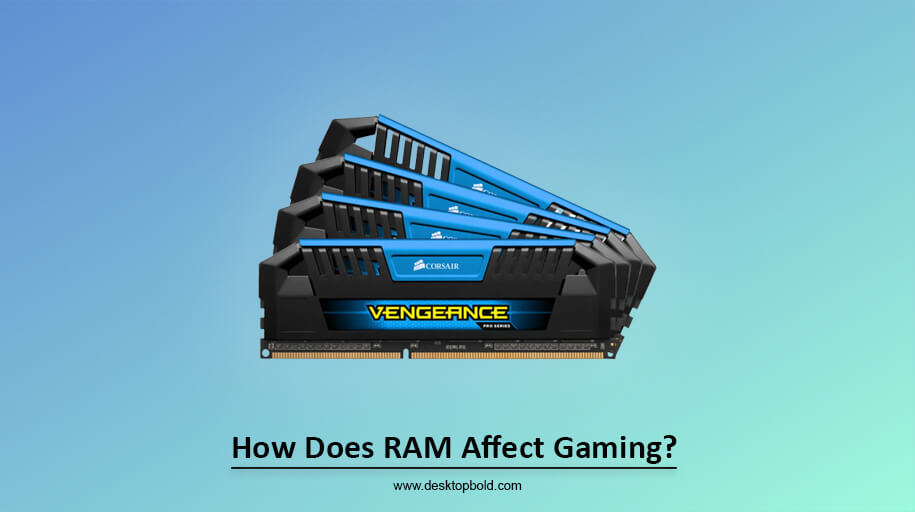Unless it is operated regularly in a device like a server, RAM will live for decades. Many people upgrade their RAM years before it genuinely dies or has severe difficulties and must be replaced because of this, even though most RAM will live for well over a decade. RAM with defects has a relatively short lifespan. So, it is necessary to know how long does Ram last.
If fresh new RAM continues to function normally after one month of use, it will likely continue to do so for the next decade. In a hosting environment, you should be concerned about its stability when data is constantly being written to and read from RAM. In this situation, RAM has a typical lifespan of 5 years or more.
How Often Should You Replace RAM?
RAM must be replaced every five years or even when it becomes the limiting factor in your PC’s ability to run video games and other programs. Memory sticks endure forever, but if your computer has less than 8GB of RAM, you might have to update it to operate all your programs and games smoothly.
There is a constant upward trend in the quantity of memory (RAM) required by today’s programs and games. RAM is rarely a limiting factor in a computer’s speed. But if you’re using less than 8 GB and still experiencing slowdowns, consider upgrading.
How Long Does 8GB ram last?
Various factors, including usage, the progression of technology, and the system software, mainly determine the lifetime of 8 gigabytes of random access memory. Under normal conditions of use, it has a potential lifespan of between 5 and 7 years on average. On the other hand, given the rapid pace at which technology is advancing and the ever-increasing requirements, it may become obsolete and inefficient sooner than that.
How Long Does 16GB RAM Last?
16GB RAM is a prevalent memory in modern computing and is considered sufficient for most users. The lifespan of 16GB RAM depends on various factors such as usage, technology advancement, and the operating system.
Under normal usage conditions, 16GB RAM can last for 5-7 years or even longer. In general, RAM has a longer lifespan than other computer components as it does not wear out with use like hard drives or degrade over time like batteries. Instead, it becomes obsolete as technology and software advance, requiring more memory for optimal performance.
However, it is essential to note that various factors can impact the lifespan of 16GB RAM. For example, heavy use of memory-intensive applications such as video editing software or running multiple virtual machines can prevent the RAM from becoming outdated sooner.
Additionally, the operating system also plays a significant role in determining the lifespan of RAM. Newer operating systems typically require more memory and can cause older systems with 16GB RAM to become sluggish or unresponsive. As a result, users may need to upgrade their memory to maintain optimal performance.
In supposition, 16GB RAM is a good memory for most users and can last for 5-7 years or longer under normal usage conditions. However, the lifespan of 16GB RAM can be impacted by various factors such as usage, technology advancement, and the operating system, so users should be prepared to upgrade their memory as needed.
How Long Does the RAM board Last?
RAM module’s usefulness declines with time for many reasons, including poor manufacturing, excessive use, and technological progress. Memory RAM modules are lengthy components that can function reliably for years, even under heavy use.
Even while the need for more memory is expected to increase, technological developments mean that the lifetime of a Random access memory board may decrease over time. To give just one instance, a RAM board that was acceptable for running an OS a few decades ago may now be enough to operate the same OS with the newest upgrades and software.
While RAM modules are generally reliable, failure can occur for various causes, including but not limited to manufacturing flaws, electrical strain, and physical harm. As a result, changing the RAM module may be necessary to restore peak performance.
In summary, a Random access memory module’s longevity depends on several elements, but even under extreme conditions, it can endure for years. Meanwhile, users should be on the alert for opportunities to increase their existing memory in light of both technological progress and rising memory requirements.
Signs of RAM Failure:
RAM is reliable, although its useful life can be shortened by carelessness. The most prevalent symptom, a Blue Screen of Death (BSOD), might appear during intensive tasks like video processing and games. Random system shutdowns and restarts are possible at this time on your machine.
How to Make Your RAM Last Longer?
Using less RAM regularly is the most fantastic way to save it for as long as possible. The lifespan of RAM is drastically reduced when used in a system that is constantly online and processes a large number of messages. However, RAM is durable and can be used without worry in everyday use.
Indeed, you can reduce the load on your RAM by closing unused programs and turning off your computer when it’s not in use. Yet, the truth is that all of that won’t make much of a difference.
Keep an eye on your RAM’s temps if you care about its reliability and longevity. Research the manufacturer’s website to see what temperatures are considered “safe” for your RAM model and brand. However, you should generally ensure that your case is cold and has adequate ventilation.
Will a Computer Run After RAM Failure?
Due to the critical nature of computer storage, inoperative RAM will declare the machine inoperable. For this reason, a computer cannot be operated without sufficient memory, as without it, there would be nowhere to keep all the necessary files and data. In this instance, your computer may not start at all, or it may crash due to memory issues.
A computer with a dead RAM stick might still be usable if another memory is in the remaining RAM slots. However, will not notice the deceased RAM card.
How Long Does the Best RAM Last?
If you were to construct a computer today with the highest quality components available, it would likely continue running smoothly for over a decade. You won’t notice the gradual slowdown in RAM speed as time goes on.
Adding more RAM requires sticks with the same exact Random access memory frequency and CAS duration as the old RAM. It is predicated on your intention to retain your current RAM. You should acquire a 32GB model if you have yet to make plans to upgrade it in stages.
Because 32GB “Dual,” which implies two 16GB RAM modules, is required if you wish to upgrade while using 32GB of memory. A 16GB “Dual” will occupy both of your motherboard’s DIMM (RAM) slots, bringing the maximum amount of RAM you can install to 16 GB.
I’ve had this issue before when I had to increase my RAM by adding extra memory after only four years. With older RAMs being phased out in favor of quicker RAMs, it took a lot of work to make changes by bringing additional RAM chips and exchanging the old ones only with newer ones.
Conclusion
It is unnecessary to worry about RAM degradation due to regular use. Despite heavy use, the processor’s efficiency degrades more rapidly.
High-resolution (4k-8k) video editing places a heavy burden on the system and requires at least 64GB of RAM. Since most issues that can impair RAM will first affect other components, such as the GPU and CPU, you still don’t need to worry about RAM. As you are satisfied now that how long does Ram last




